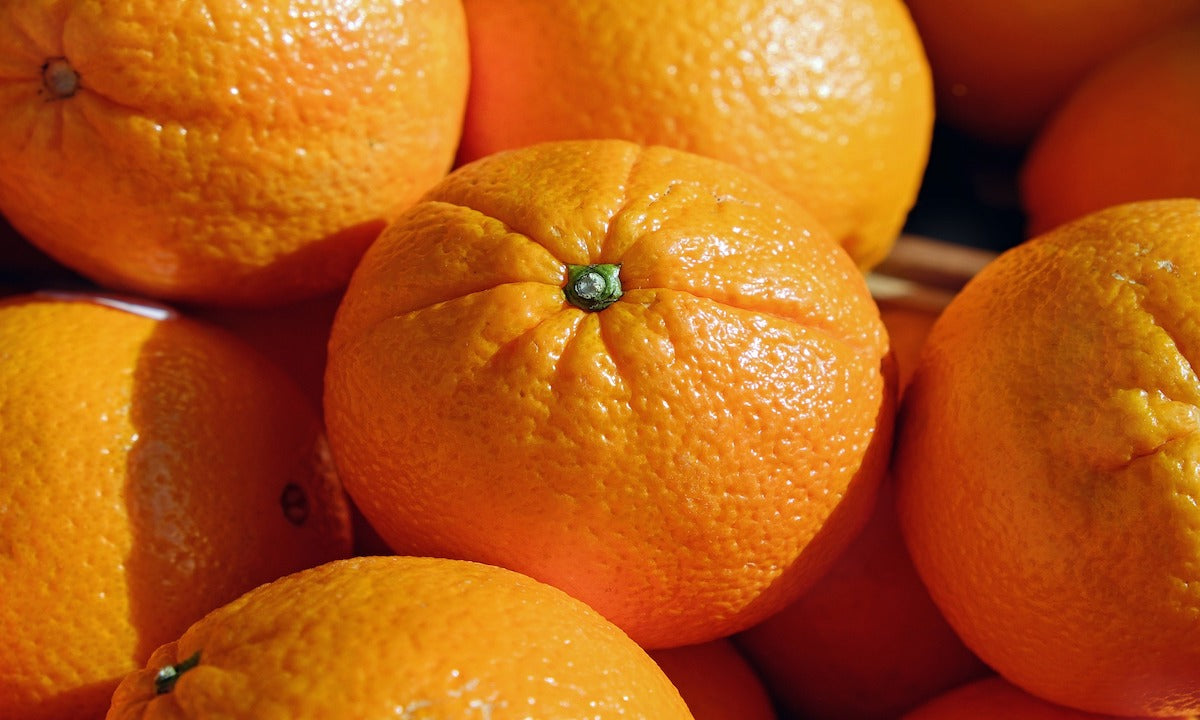Your Cart is Empty
FREE SHIPPING on US orders over $45. Save 25% With Code TAKE25 at checkout.
FREE SHIPPING on US orders over $45. Save 25% With Code TAKE25 at checkout.

If you’ve ever been curious about the role of vitamin C in your body, you may be interested to learn about the highest vitamin C foods. Vitamin C has a multitude of benefits, including its ability to support the immune system, cardiovascular health, prenatal health, and youthful skin.
When you’re suffering from a pesky cold, vitamin C can help reduce the amount of time you’re sick (and can help decrease your symptoms in the meantime). It has even been noted for lengthening life for those with cancer! With so many critical health benefits, there’s no reason not to make vitamin C an integral part of your diet.
Free radicals are molecules containing oxygen that are missing electrons, causing them to attempt to “steal” electrons from other molecules. If free radicals react with human cells and their components—like DNA, for example—they can cause enormous damage, and create more harmful free radicals in the process. This process, called “oxidative stress”, can result in conditions including heart and blood vessel disorders, inflammatory diseases, ADHD, Parkinson’s disease, autism, Chronic Fatigue syndrome, Sickle Cell disease, Asperger syndrome, and many cancers.
Antioxidants are molecules that can prevent free radicals from causing oxidation, and vitamin C is one of the most important antioxidants in the human body. Antioxidants can donate electrons to free radicals without destabilizing themselves, which prevents free radicals from stealing electrons from important molecules like DNA.
There is strong evidence that vitamin C has a direct impact on heart health and cancer prevention. Unfortunately, our bodies don’t naturally produce it, so we have to get it through our diet.
As we age, the level of vitamin C within our body naturally decreases, sometimes resulting in a less effective immune system. Many people who suffer from common diseases have less vitamin C in their bodies than healthy individuals. Since older adults tend to be more prone to infections and illnesses, taking a supplement is then a critical component of a healthy lifestyle.
In a 1995 study, low levels of vitamin C correlated with a higher risk of stroke in elderly people; patients in the study who took higher levels were 50% less likely to suffer a stroke. The highest vitamin C foods are one easy way to get more of it in your diet and decrease your stroke risk.
Vitamin C can work absolute wonders on the skin, due to its free-radical fighting power and collagen-boosting abilities! Collagen is the structural protein in skin that gives it strength and firmness—and as we age, collagen starts to diminish. Vitamin C helps stimulate skin cells to produce more collagen, resulting in younger-looking, firmer skin. When applied topically, vitamin C (in the form of ascorbic acid) can help to increase skin’s brightness and tone, and can even help pores appear smaller.
If you eat a wide variety of fruits and vegetables each day (doctors recommend around 4 servings of vegetables and 3 servings of fruit per day), you shouldn’t have any difficulty reaching your recommended daily amount. If you aren’t able to achieve the recommended value through the highest vitamin C foods, supplements may be needed.
According to the USDA, common foods with the highest concentration include:
The amount we ingest correlates very strongly with our health. The U.S. Department of Health and Human Services recommends 75 mg to 85 mg per day for adults, although there is some evidence to suggest that higher dosages (120 mg or more) can help prevent long-term oxidative stress. Higher doses, taken in the short term, can also help reduce cold symptoms and shorten sick time. But there’s no need to take more than 500 mg a day since your body can’t process more than that effectively.
Adding more of the highest vitamin C foods to your diet can be as simple as adding sliced bell peppers and tomatoes to a kale salad, grabbing an extra citrus fruit every day, or cutting up two kiwis for a healthy and delicious snack. And orange or grapefruit juice, broccoli, Brussels sprouts, pineapples, strawberries, mangoes, and kohlrabi are all loaded with it.
Thankfully, if fruits and vegetables aren’t really your thing (though you should certainly make an effort to eat them!), there are plenty of excellent supplements on the market to help boost levels for finicky eaters.
Vitamin C isn’t just any other vitamin—it’s an absolutely essential free-radical fighting antioxidant. Eating some of the highest vitamin C foods can increase your lifespan and prevent some of the most dangerous diseases that threaten human beings, including Alzheimer’s disease. Do yourself a favor and up your intake of fruits and vegetables! If you choose to include some of the highest vitamin C foods in your diet, your body will reward you with increased health, vitality, and longevity.